Construction in Libya: Exclusive interview with Libyan Businessman Ahmed Maiteeg
Ahmed Maiteeg, General Manager of Thobacts Hotel and Managing Director of DAA Construction & Engineeringg
Ahmed Maiteeg is a successful Libyan businessman. The main advantage of the company’s hotels in Tripoli is the staff; they are very friendly and kind and they treat people as though they were guests in their own homes. The group focuses on business hospitability and provides excellent services for business travellers to Tripoli. Apart from the hospitability, Mr Maiteeg is also involved in the construction sector in Libya with the construction company DAA Construction & Engineering.
Interview with Ahmed Maiteeg, General Manager of Thobacts Hotel and Managing Director of DAA Construction & Engineering
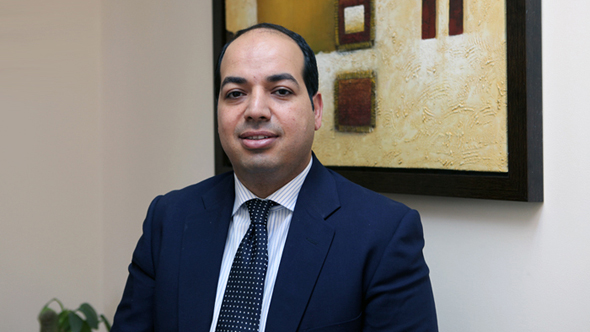
Let’s talk first about the competitiveness of Libya. In a study carried out by the World Economic Forum which was published in the Global Competitiveness Report 2010-2011, Libya is positioned very badly in terms of the control of corruption, rule of law, regulatory quality, government effectiveness, political stability, accountability etc. What is your own take on the business environment in Libya? And also, in the current post-Gaddafi era, what is the vision for the future in the competitiveness terms?
You have said it all, you haven’t left anything out! Although I think this report has accurate numbers, we have to remember that Libya has been under a regime that lasted over 4 decades, and especially in the last 2 decades of that regime, Gaddafi tried to have everything owned by the state. All the companies doing business in Libya were owned by the government and there was no efficiency or competitiveness, the employees knew they would have their salary at the end of the month and that was that. There was no motivation for development. This was one of the biggest problems during the regime; there was no motivation to develop, to train or to be as efficient as possible. People went to work just to be there. I think this has happened all over the globe in different dictatorships. I hope that Libya will change a lot over the next 2-3 years. Since 2011 Libya has been developing its private sector which since then experienced more than 60 -70% growth, although some rules and regulations still remain from the old regime. The Ministry of Economics still follows the same constitution, if we had a constitution then, what we had was many government companies ruling the economics of Libya. I think in the next 2 to 3 years a lot will change. Most of the business done in Libya nowadays is being done the private sector and as you know, the private sector is the best for competitiveness and efficiency.

When we interviewed Dr. Karoud from the Libyan Stock Exchange he said that the private sector only represents 5% of the real economy. Would you say that this figure is accurate? If it is, it is very low compared to the public sector which is not healthy.
Well, it depends if you talk about how much money they have or how much business they do in Libya. I think he is talking about the entire budget of Libya. It is different when you look at who is running the local market for example, it is the private sector, but if you look at who has the money in Libya, of course it is the government. So if you divide by the capital that the private sector has then you will find the figures that you mentioned. However, if you look at who is trying to do business now in Libya, it is the private sector.
What would you say is the outlook for private business and what would you specify as being the major challenge?
This is related to the previous question: the government has more than 95% of the capital and money. This is true because the major projects in Libya have been run by the government through private or public companies. What they did before was they brought in companies from outside Libya to do most of the infrastructure, public housing and roads etc. So what we hope that the Libyan government will try to do now is to look more closely at how this money is spent, because if the local private sector does not grow then there will not be real economic development in Libya. The economy will only grow if the local population and the middle classes grow and this will only happen if they have enough business or enough income.
I think our main advantage is our staff; they are very friendly and kind and they treat people as though they were guests in their own homes. We also have excellent locations in Tripoli; all our hotels are in the centre of the city. We focus mainly on business hospitality. Our hotels are very central, near to the Tripoli Fair and we also try to provide excellent services such as high speed internet that businessmen and businesswomen are looking for.
Government spending is one issue and the other is banking. The banking system in Libya is very old; it is one of the most orthodox systems in the world. We still have a very old fashioned way of running our banks. If we aren’t able to offer loans to the people, then they will not succeed in the private sector. The Libyan people have suffered a lot in Gaddafi’s time, now they have much better possibilities for success.
What in your opinion is the vision for Libya? There is an article which summarised the visions for Libya; one was to become a kind of Dubai of North Africa, another was to become a modern Islamic society based on knowledge but lacking in economy and third was that Libya would become a trading inter-port between Africa and Europe. What is your personal vision for Libya?
I would like Libya to become a mix of all of these visions that you mentioned. We are an Arabic Islamic country and we are in the middle of the world, we should have good relations with all countries and there is no reason why we shouldn’t have good relations with all the Mediterranean countries around us. Secondly, I think Libya should be able to exceed Dubai, due to its position, the local population, the geographical areas, the 2,000km coastline; you name it, we have it!
The only thing that challenges Libyans over the next ten years is education and renewing the culture of the people. I always say that living is an art, and that the art of living in Libya has to change. Particularly the work culture has to change, it is no longer just about getting your salary at the end of the month, we want people to think about how they can develop and progress in their jobs. 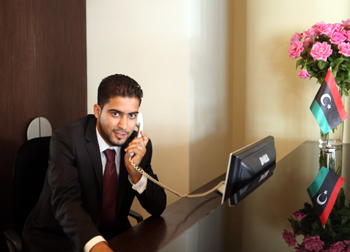
I hope Libya will have the chance to become a mix of all these visions, to become a country with a good chance of being one of the leading developing countries in the next 10 years. Tourism is a sector that Libya has not really developed yet at all and currently in Tripoli we have less than 3,000 rooms for guests. I saw a study talking about Libya over the next 10 years that said that we should have more than 100,000 rooms in Tripoli alone. This is one major issue; tourism here is not developed at all. We also have to develop our oil sector. Libya has had one of the lowest investment rates in terms of developing the local oil area in the Middle East. I think if you compare us to Saudi Arabia or the Gulf States, we are developing less than 30% of the income from the oil sectors.
In terms of airports, we only have two major airports in Libya: Tripoli and Benghazi. We also have one in Misrata but it is very small. This sector requires a lot of development. Libya could easily become a transit hub connecting the Far East with North America. It can be the gateway to Europe and Africa.
Libya has a lot of potential, whether the Libyan people are able to deliver it is what we are going to see over the next few years. As a Libyan I have a lot of faith in our people and in what they can do.
We see a lot of mixed messages in the media. We have critics saying that Libya will descend into a civil war and that there are a lot of pro-loyals who are now arming in the south. There are also those that are predicting 18% growth for Libya in 2013. The Libyan Herald just reported that Libya is going to spend US $140 billion on infrastructure projects. In your opinion, is Libya being oversold? Are the negative reports really representing what is happening on the ground?
I think Libya has passed through very difficult times, the revolution was a difficult time but in the end it united the people. In the last months of Gaddafi’s time in power, he really tried to create a lot of division amongst the people. 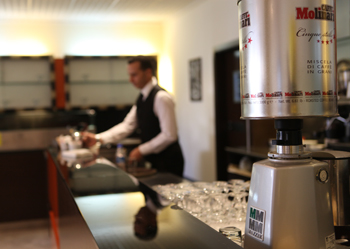 We had hoped that Libya could get through the revolution without so much bloodshed but unfortunately that was not the case. We need time to resolve the problems from the war, in all regions of the country. I think that time is the only solution for solving these problems.
We had hoped that Libya could get through the revolution without so much bloodshed but unfortunately that was not the case. We need time to resolve the problems from the war, in all regions of the country. I think that time is the only solution for solving these problems.
Regarding the billions of government spending, the issue is not the amount they are going to spend, but rather how they are going to spend it. Also, with the government that Libya has right now, do you believe that we are capable of spending this kind of money? I mean if you have US $50 billion and you have a Minister of Housing and Infrastructure who by the middle of the year has not started any projects yet, how are they going to spend the money by the end of the year? You can’t. One of the greatest problems we have here in Libya is bad management. People who were loyal to Gaddafi have left and the new people who have replaced them are not prepared to make such big decisions, not because they are incapable but because I believe it is a kind of skill that comes from experience. People can be born artists or athletes, but I don’t believe they can be born managers.
The big challenge that Libya faces now is how to spend this big budget. I think we need to start spending our money correctly. I shall give you an example; the previous government had a budget of US $68 billion, by the end of their period they passed on to us around US $18 billion. This money was not spent and did not go back into the Libyan Central Bank. We did not give the money to the government in order for them to return it to us; the budget is there to be spent in the country on infrastructure, housing etc. You may think it’s good that they bring the money back, but that’s not right, you should have good management to spend the money correctly.
Regarding the outside view that Libya is insecure, when you do business on a day to day basis can you tell me how it feels on the ground?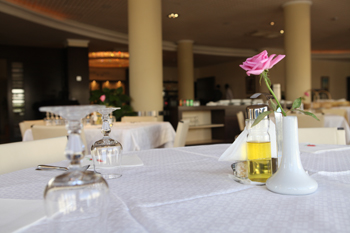
In my experience working in the private sector in construction, hotel management, hospitality, road construction, oil fields etc., we have never had any problems with security issues, maybe because we are Libyans. I think the issue of insecurity is overstated here in Libya.
I don’t see why anyone should have any security problems doing business in Libya. If the company is foreign then I am not sure, but as a Libyan company I don’t see any problems. Of course you have to be careful and think twice before going to certain areas but at the end of the day I think the media gives the issue more attention than is necessary.
Can you give us a brief about the development, strategy and vision for your company?
We have a construction company (DAA Construction & Engineering) that has grown quite well in the last 4 years, we construct hospitals, hotels, public registration buildings etc. We also have a new section in our company that constructs roads and infrastructure. Our company is registered with the Libyan airport authorities as they are our clients.
In terms of hotel management, we run 3 hotels in Libya; they are all 4 star hotels. We have 3 hotels under construction, 2 in Tripoli and 1 in Misrata. The Tripoli hotels will have around 400 rooms on the airport access roads. The Misrata hotel will have 295 rooms.
We work in other sectors such as the oil field sector. We do business with some oil companies; we provide maintenance of their camps, pipelines, roads etc. 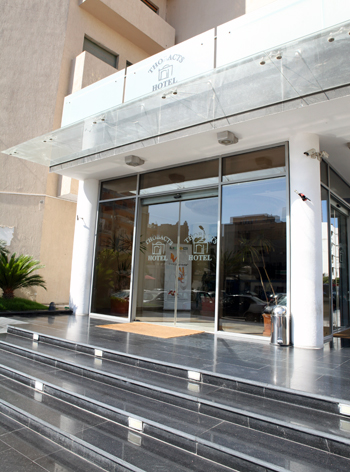
There is also an investment side to our company; we are trying to get a license for one of the Islamic banks in Libya. We are still waiting for the license from the Libyan Central Bank. As you can see there are many branches to our company. As a group we hope to develop over the next 5 years to cover many sectors in Libya. At the moment we have approximately 263 employees. A new firm that we have is a consulting and engineering company.
Regarding the hotel industry in Libya, what is the outlook for this sector? You mentioned the statistic that Tripoli has only 3,000 rooms.
Going back to the topic of the media, if the media offered a better view of Libya then maybe we would have a stronger hotel industry with the 100,000 rooms that we should have. The problem is that the media is going against Libya, and this is what the outside world sees. In my opinion, we need a lot of investment in hotel management and of all guest and hospitality companies in Libya.
Currently there are very few hospitality management companies in Libya. In terms of investment in rooms and hotels, a lot more investment is required.
So we can expect in the near future a squeeze in prices but when the situation stabilises many people will see that there is business going on in Libya and they will flock in creating a big boom. Do you predict this happening?
Actually over the last year we have had an average occupation rate of over 72%. This is only one year after the civil war. So personally I think the hotel business in Libya is doing quite well. We had a construction fair in Tripoli and during those 2 weeks we had 100% occupation of our hotels there. This is a good sign for business.
On the mid-term horizon, the construction of a hotel can take years, and business can grow faster than the capacity.
Of course and this is one problem that we will face in Libya very soon. I think that the construction of hotels should have started sooner because we are going to have a shortage; there is no doubt about it.
What is the return on investment that a hotel company can achieve in this environment?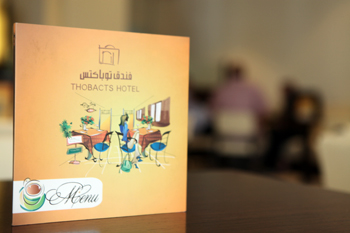
I think in 5 to 6 years you can have a full return on your investment in the hotel sector here in Libya. I think this is one of the best rates in the world.
Regarding the construction industry, you are one of the leaders in the construction sector, although I imagine that you are facing competition from Turkish, Lebanese and Chinese companies. How do you compete with these players?
Well first of all, being a local company gives us a very big advantage; we know how to manage our prices and business much better than foreign companies. Secondly, I think that we have better construction knowledge than the Turkish or the Chinese. We have many joint ventures with European companies which give us an advantage because that way we are local and have some of the best knowhow in construction. We are able to compete because we are a local company but with European standards.
What would you identify as your major strength and also you main weakness or challenge that you face in your construction business?
In Libya right now in terms of construction there is the possibility to grow very quickly. I think the government will have to spend a lot of money in construction and public housing etc. so there is no shortage of projects.
Our weakness would be the lack of personnel. One of the biggest challenges in Libya right now is finding the right managers, especially managers who are really skilled in doing business. Also the banking system in Libya is terrible.
In terms of public housing, how bad is the situation?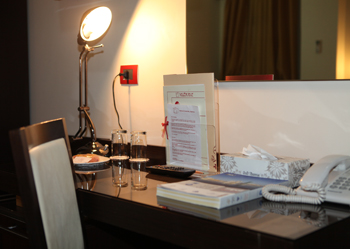
I think there are requests for more than 150,000 public houses; the government should build more than 300,000 over the next three years, so an average of 100,000 houses per year. I think this number is beyond what they can do. I don’t think private and public companies together could achieve this number.
When we talked with the Chairman of NOC Dr. Berruien, he estimated that they need about US $40 billion in investment to upgrade the oil and gas infrastructure. In your opinion, how much investment does Libya need in order to upgrade everything?
The last figure I heard was US $300 billion as the budget for everything in Libya for the next 3 years, so about US $100 billion per year. I would not be surprised if 30% of this budget will go for renewing the oil and gas infrastructure and also for infrastructure in terms of roads and airports etc.
Going back to the previous question regarding housing, I think that Libya is still making the same mistake in that they should have more private investment in housing and construction. This isn’t happening due to the banking system, but if they can review the banking system they will be able to solve this problem easily. I believe there are many private companies in Libya that could provide housing, without relying on the government and have direct relations with their customers as is done all over the world. Insisting on providing public housing only from the government is an idea that I think we have seen all over the world a long time ago. Just by reviewing the banking system and having a master plan ready for each city so that we know what the infrastructure will be like and where we can build etc. over the next 2 years to be able to start a construction project is in my opinion the solution for public housing development in Libya. We have talked to the government about this and they don’t have a problem with the idea, the only problem is that changing the banking rules will take some time. The Central Bank does believe in the idea, and they have a lot of money deposited in the bank, and as you know having money in the banks is a very bad sign. The bank should be working with the money and not just keeping it on the shelf.
Regarding your hotels, what is your major differentiation, your niche in the market? Why should people choose to stay in your hotels?
I think our main advantage is our staff; they are very friendly and kind and they treat people as though they were guests in their own homes. We also have excellent locations in Tripoli; all our hotels are in the centre of the city. We focus mainly on business hospitality. Our hotels are very central, near to the Tripoli Fair and we also try to provide excellent services such as high speed internet that businessmen and businesswomen are looking for.
In terms of your business growth, what is your strategy? How would you like to grow in terms of the number of properties, and would you be moving into the 3 star or 5 star sector?
In terms of hotels, we are trying to focus more and more on the 4 star hotels. We are planning to build two 5 star hotels, one in Tripoli and one in Misrata; however our main area is the 4 star hotels. We are trying to reach 1,500 rooms by 2016.
How much investment will this require?
Well I believe we are talking about somewhere between 50 to 65 million Libyan dinars.
We are also going to be moving into new sectors. We are going to be doing property management as well. We have many buildings in Tripoli that we rent to other companies. This sector is going to develop a lot over the next 3 or 4 years.
In terms of the group, what is your year on year growth? What do you predict for the future growth of the company?
Last year our growth was around 17% and this year we expect it to be about 20%, especially in construction and property management. We are building a hospital, which is our own investment and it will be finished in 2015. This is the first time that we have worked in this sector and we hope this will be one of the principal hospitals in Libya for cardiology.
In terms of hotels, we plan to have a new hotel every year.